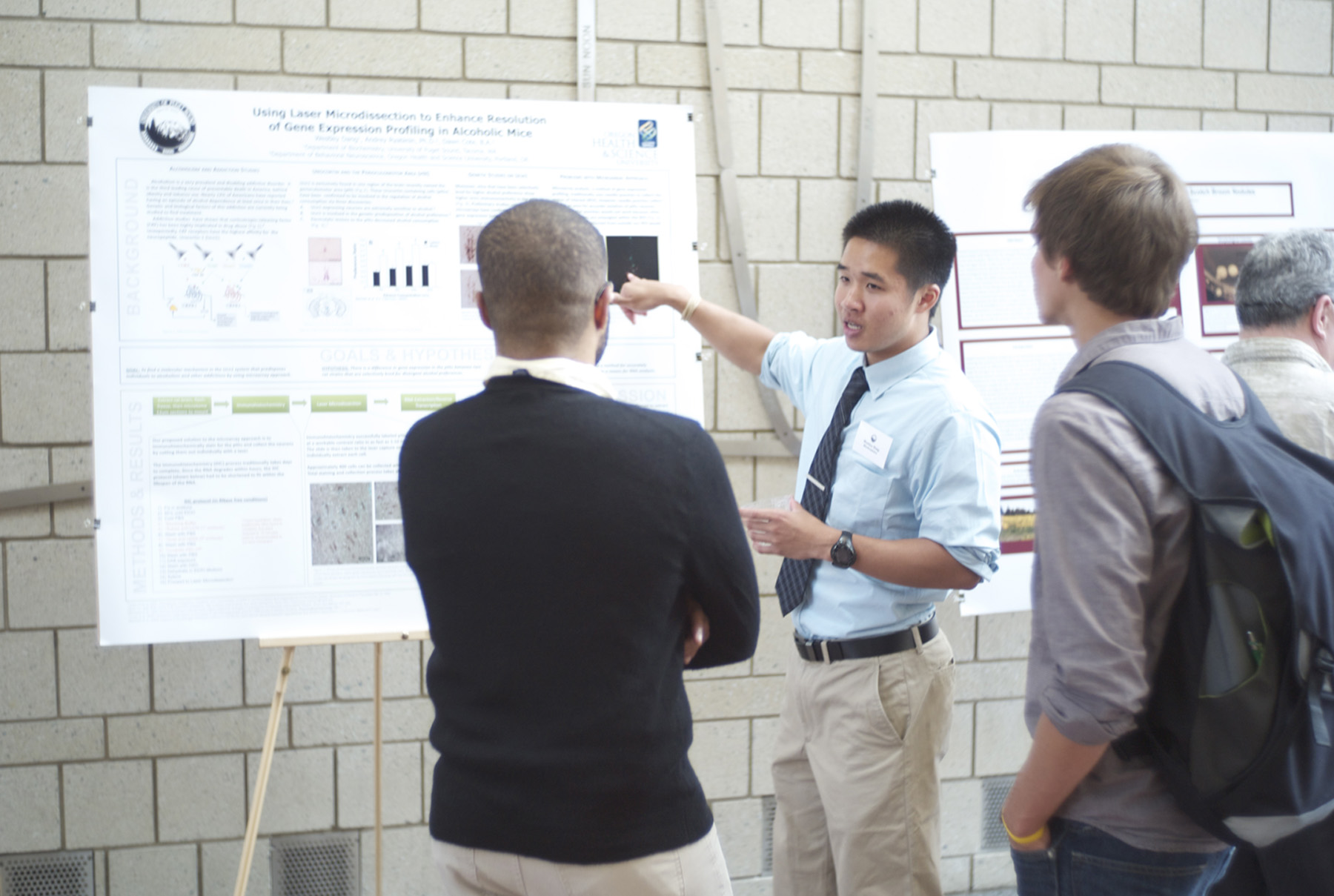
When most people think of summer, the mind immediately jumps to the wonderful bliss of a lack of schoolwork, responsibility, etc. However, this summer 68 Puget Sound students continued their academics in the form of research in the science and humanities departments. The symposia, which took place on Sept. 9 and 14, served as the opportunity to display their hard work.
“The sheer variety of topics studied by the students reflects the diverse interests of our students,” said Sarah Moore, the director of the humanities symposium of the projects.
The research projects focused on a variety of different subjects covering many aspects of both humanities and sciences. Senior Jordan Carelli worked to characterize carbohydrate-active enzymes. In humanities senior Jay Herman conducted an intensive study of Irving Berlin, a Russian Jewish Immigrant but also a songwriter of classic American and Christmas music. There was even an ethnographic study of the culture of contortion done by Jackie Ward. Other students conducted their research abroad and studied different cultures for the summer.
The symposia offered a variety of presentations. Most science researchers made posters to display their findings, but humanities students took a variety of approaches. Presentations encorporated video, musical scores, and research papers. Some students presented their work through performance as well. Sophomore Joe Bozich wrote a composition to convey his research in jazz techniques
Moore explained that the research was not only valuable because of the information students gained on the topics, but the projects promoted independence and allowed students to use their academic skills in a long-term project. For many students, this was their first experience with long-term independent research.
To apply for the grants, students propose an idea or topic they would like to study with the support of a faculty advisor. If they are approved, they receive a $3,000 grant to do their research. Students are expected to conduct research full-time. However, the 10-week-long research period is not always easy, and can sometimes be tedious.
“Research goes a lot slower than whatever you plan, so allow for plenty of time,” said junior physics researcher Brooke Peaden. Peaden’s research focused on the effects of holes in brass plates on the vibrational modes. She worked closely with an advisor during the summer and plans to continue research on her topic throughout the year.
Junior Helen Shears spent the summer researching the history of queens during the War of the Roses, a period of civil war in England. Her research was sparked by a project from her history class and she wanted to find out more.
“I would check out stacks of books from the library, and that was followed by intense hours of reading,” said Shears. She also noted that this was one of the most challenging aspects of the research process.
“[Students] have talked extensively with their faculty advisors, but few others along the way,” said Moore. Students conduct independent research and help professors on their own research projects. The symposia are a valuble way for students to share their research with faculty and students alike.
“Hearing feedback and other perspectives about their work is very important,” Moore said.
Senior Alayna Schoblaske spent ten weeks researching the effects of plasticizer on the earth’s soil.
“Much of my research served as prep work for my advisor’s future work,” said Schoblaske. It was rewarding to be able to apply the skills she had learned in previous classes to work in the labs and conduct studies.
The research symposia were successes for the student participants of 2010 summer research. The talent and sheer creativity was echoing throughout the conversations and reflections that took place during the symposia.
